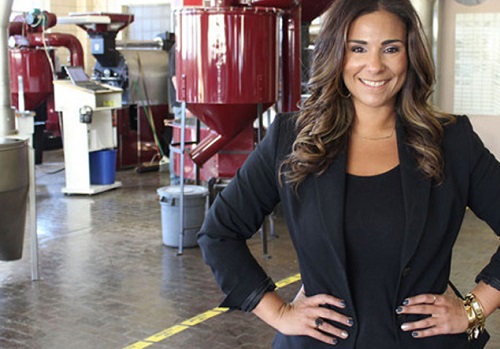For Alyza Bohbot, aligning her business with a cause has proven a successful strategy. She’s the founder of Duluth, Minnesota-based City Girl Coffee, an offshoot of the company her parents started in 1990, Alakef Coffee Roasters. With retail management and sales experience under her belt, Bohbot agreed to take over the family business when her parents retired.
She did so reluctantly, at first, torn between the guilt of letting the familial venture go and a desire to do something with a stronger social bent. In fact, when her parents put forth the idea, Bohbot had just completed a master’s in school counseling and was living on the east coast. But she packed up her bags and returned to Minnesota for what she assumed would be a temporary relocation.
And then Bohbot fell onto a social cause she could get behind and her plans changed. “I realized really quickly I was going to be passionate about it,” she says, recalling a pivotal conference she attended of the International Women’s Coffee Alliance (IWCA). There she listened to a story of a widow from Columbia who was unable to get a loan from local banks to fix farming equipment that she desperately needed to keep her coffee farm alive. The reason? Simply put: she was female.
“I had a lightbulb moment, I knew we have to do more,” Bohbot shares. “I then started becoming aware of the inequality facing women at the countries of origins where coffee comes from.” In doing more research, she learned that 70 percent of the estimated 1 billion poor are women and that, according to The World Bank, over 500 million people are dependent on coffee for their livelihoods, 25 million of whom are coffee farmers.
Determined to tackle that inequity, in 2015 Bohbot started City Girl Coffee with a mission of supporting women-owned-or – managed coffee farms and co-operatives around the world. To that end, Bohbot and her team source as many beans as possible from these producers—over 10 today from Columbia, Kenya, Brazil, Honduras, Peru, Ethiopia, Mexico, Sumatra. Guatemala. Africa and East Indonesia. And they give a portion of every sale to organizations that support women in their country of origin, toward creating a more sustainable coffee industry.
With a strong background in marketing, Bohbot was, of course, aware that the cause she infused into her business would also prove a strong marketing differentiator. After all, there was a real saturation of coffee producers and shops in Minneapolis/St. Paul’s market (“you can throw a stone and hit 50 independent coffee shops”). Her parents had built a loyal customer base by offering high quality product and great customer service over the many years but Bohbot was looking to infiltrate new markets and attract new customers, specifically the younger demographic. The question became: what can we do differently?
To be sure, doing different necessitates a different approach. To ensure women coffee producers receive the resources they need and that City Girl employees receive a fair wage and benefits, premium pricing is inevitable. It’s not unusual to receive only a few bags at a time from their coffee farmers, she explains. “We ask them, ‘what do you need us to pay to help you produce next year,’” she shares. Sometimes that means $4 or $5 per a bag, plus production and other costs.
Still, from what she’s heard and seen so far, Bohbot is convinced City Girl is on the right path. “The message we keep getting is that the cause is enough, people want to be connected to what they’re purchasing, something bigger than themselves,” she says of a message that has found support in current research demonstrating a shift in purchasing patterns of millennials and younger generations.
“By investing in this brand and this story, they feel they’re a part of that, they’re making a difference, they say, ‘We just love what you’re doing, we want to support you any way we can.’” And, if someone isn’t happy with the story, the product and its respective price-point, that’s just fine with Bohbot. “We’re unapologetically unapologetic,” she says with a smile of her mission and its potential implications. “Not everyone is going to be our target consumer.”
Elisa Birnbaum is the co-founder, publisher & editor-in-chief of SEE Change Magazine and the host of its podcast, In the Business of Change. She’s currently working on a book about social entrepreneurs tackling challenges in their communities and around the globe.



Hi Elisa, would love it if we could feature KLINK Coffee Inc., a social enterprise non-profit in Toronto – we help those coming home from prison with training, mentorship, employment and opportunities.
Hi Mark, Thanks so much for your note. I’m a big fan of KLINK and we actually did a piece on the social enterprise a while back (this is a link to the original story http://www.seechangemagazine.com/?p=137 but as you can see it’s pulled from an old version of the website so the formatting is off – and the date may be wrong, it may be closer to 2012). Still we’re happy to revisit. I’ll be in touch.